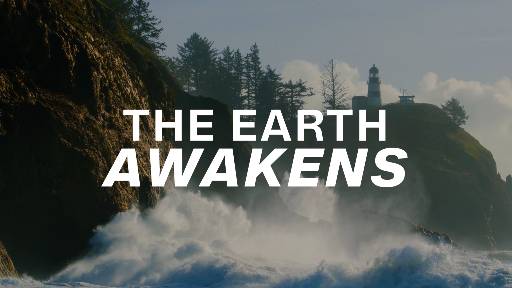-
Hebrew Word Study: Qûṣ Awaken, Waking Up To God's New Thing Series
Contributed by Justin Steckbauer on Jun 6, 2022 (message contributor)
Summary: What is it like to be lost? Have you ever been lost, maybe out in the woods, or lost while driving, or maybe when you were a child you lost your mom or dad at the store, and you couldn’t find them?
What is it like to be lost? Have you ever been lost, maybe out in the woods, or lost while driving, or maybe when you were a child you lost your mom or dad at the store, and you couldn’t find them?
It’s scary right? As you realize you may be lost, you start to get a little bit nervous but you think, no big deal I’m sure I’m not really lost. But more and more you’re fighting back this worried feeling. You try to sort of put a manhole cover of it, but it keeps bursting out, and pretty soon your whole mind is panicked, and confused, and you start wondering, what am I going to do? You start to see scenarios where you are in danger. It’s terrifying, and eventually we can go to full blown panic attack.
I can only imagine that sort of feeling when a woman is walking alone and a scary van pulls up and they try to yank her off and pull her into the van, for who knows what sort of tortures, probably rape, and murder, or being pressed into sex slavery. It’s scary stuff, being lost, being taken away, being helpless.
What about when we’ve woken up from a nightmare, late at night, and we’re covered in sweat, cold, scared, and complete darkness surrounds us, we panic, and reach for the lamp, and how much colder it feels when we pull the lamp cord and the light doesn’t work! Ugh. Then we rush up in frustration and turn on the overhead light.
We go from darkness, to light. We awake from one empty dark reality to a full bright reality where we can see and are safe. And that brings us to our study for today.
Today we’re talking about a Hebrew word that is particularly powerful and deep, it’s qû? (pronounced: koots) and it means to “awaken.”
From Strong’s Exhaustive Concordance, “koots; a primitive root (identical with the idea of abruptness in starting up from sleep (compare H3364)); to awake (literally or figuratively):—arise, (be) (a-) wake, watch.”
So the Old Testament often makes use of this word to describe waking up from being sleep, or also waking up after dying, to the next life, sometimes in a negative sense.
But in our scripture today, it’s used in the psalm, psalm 17, verse 15, “But I will see Your face in righteousness; when I awake, I will be satisfied with Your presence.”
The song writer is David, and he’s praying a prayer for protection here. And we says at the end of the psalm, this is the last verse of the psalm that though his enemies receive good things in this life, which often the wicked receive good things in this life, David writes, I will see your face in righteousness, when I awake, I will be satisfied with Your presence.
Now what we’re thinking here is that David is probably talking about after he dies, he will awake from death to be satisfied with God’s presence. This is 100% true and it’s the first meaning I want you to see in this Hebrew word.
Firstly, awakening, qû? (koots) is to indicate to us as believers today, that our reward is not in this life, our reward is in the next life. Don’t wave that off please. When preachers say that, we often think well here we go pie in the sky after I die. I want you to see that the next life, is very real, and practical and physical. It’s real. You should really be spending this life preparing for the next. That’s when life really starts. This is just a temporary journey through a broken land.
Our enemies, the rich the powerful, the elites of our society, the academics and stockbrokers and all them, they have their reward in this land, fancy cars, beautiful houses, beautiful women, men, to choose from, drugs, alcohol, parties, all that, but it’s so incredibly temporary. And in the next life, they will awake, to surprise, to a dark room, with no lamp to light. And it’s a tragedy, because they are blind to spiritual truth.
So yes, we know, gloriously, and I work my whole life to this point, when we will see God face to face and behold His glory, and we’ll receive our reward for faith in Christ and our good works on the Earth. That’s wonderful.
But I also want you to see in awaken qû? (koots) that this is something that happens in our lives today, time and again. The biggest awakening moment for me, was when I became a Christian.
And in preparing this message I was racking my brain trying to figure out, just how do I describe what it feels like to not have Christ as savior. When I think back to those times, when I wandered about the city at night, did drugs, smoked cigarettes, did everything for me, me, me, it seems like a dream, like something far away. Do you remember what it felt like before you knew Christ?

 Sermon Central
Sermon Central

